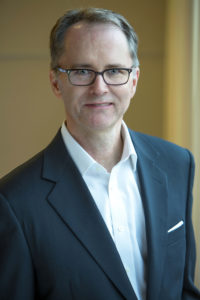In 2017, the Centre reported the results of a survey that revealed widespread dissatisfaction among ICSO leaders with their existing governance structures and mechanisms, as well as with the current balance of power within their organisations. Among the most frequently mentioned frustrations were slow decision-making, nagging questions of legitimacy and poor execution—and all of this despite the fact that some of these same organisations had engaged in governance reforms over the previous two years to address their issues.

This past September, leaders from eight ICSOs met in Berlin for the better part of three days to focus on how to best address these frustrations within their own institutions. At this Centre-sponsored Global Governance Lab, the participant cohort embodied a range of roles from board members to CEOs, from deputy secretary generals to program and governance directors. Collectively, they represented federations, confederations and unitary governance structures; faith-based and secular organisations; and humanitarian, human rights and development-focused INGOs, and together they possessed almost two centuries of experience in the civil society sector, with much of that time spent in leadership positions. Most of the participants represented organisations that were actively considering changes or updates to their current governance model and processes.

The starting point for the group’s exploration was to assess in what specific ways the formal and informal power dynamics and governance structures currently at play either helped or hindered the realisation of their organisation’s intent. While each organisation had its own unique answers to this question, a number of themes emerged across the ICSOs. In fact, despite differences in formal governance structures and processes, the issues identified by the leaders in the Lab were strikingly similar across the cohort. Some of the common themes that emerged were as follows:
- The impact that an organisation can potentially have in the world is compromised when its power dynamics and governance structures are not aligned with the achievement of the intent of the institution.
- Power arrangements and governance structures that may have worked well at one point in the organisation’s past are often not the same as what is required in the current circumstances.
- Informal power often undermines formal structures and processes, even well-established ones.
- Money and access to resources (like funders) are major determinants of who has a voice and influence.
- Money creates uneven power relations not only between organisations and their funders, but also within organisations, when financial contributions of one member organisation result in greater decision-making or voting power.
- Long tenure with an organisation combined with a loyal network of relationships can also create a strong base of power and influence for individual actors.
- Those who have decision-making power are often not the same as those with the power to implement, block, or ignore strategic decisions that have been made.
- Power is asymmetric—that is, it takes more power to create and build momentum for action and change than to destroy or block necessary action and change.
- Any significant power shifts and/or meaningful governance reforms almost always require that some individuals and/or parties give up or share power that they have long held or protected.
- Hence, modifications to power dynamics and governance structures require committed and courageous leadership to withstand the inevitable resistance to change.
Interestingly, while all the organisations who participated in the Lab identified specific changes they needed to make to better achieve their organisation’s intent, the changes that were most frequently highlighted did not involve transforming the formal governance structures or processes. Instead, their recommendations most often cited shifting the informal yet potent power dynamics in their organisations. We will cover these specifics in our next instalment of this blog.
Ed Boswell, CEO and Co-Founder, Conner Advisory
(Along with Wolfgang Jamann, Ed co-designed and co-facilitated the Global Governance Lab.)










